Publications
Articles, publications, books, tools and multimedia features from the U.S. Institute of Peace provide the latest news, analysis, research findings, practitioner guides and reports, all related to the conflict zones and issues that are at the center of the Institute’s work to prevent and reduce violent conflict.
Question And Answer
Blinken’s China Trip Shows Both Sides Want to Stabilize Ties

La Transition Retardée du Tchad Frustre ses Citoyens
On May 14, demonstrations against France’s influence in Chad turned violent, injuring several policemen and leading to damage at several French-owned gasoline stations in Chad’s capital city of N'Djamena. Wakit Tamaa, the civil society and opposition coalition that called for the demonstrations, had organized the event for participants to express their disapproval of French military influence in the country — including perceived French support for the Transitional Military Council (CMT) that has ruled the country since April 2021.
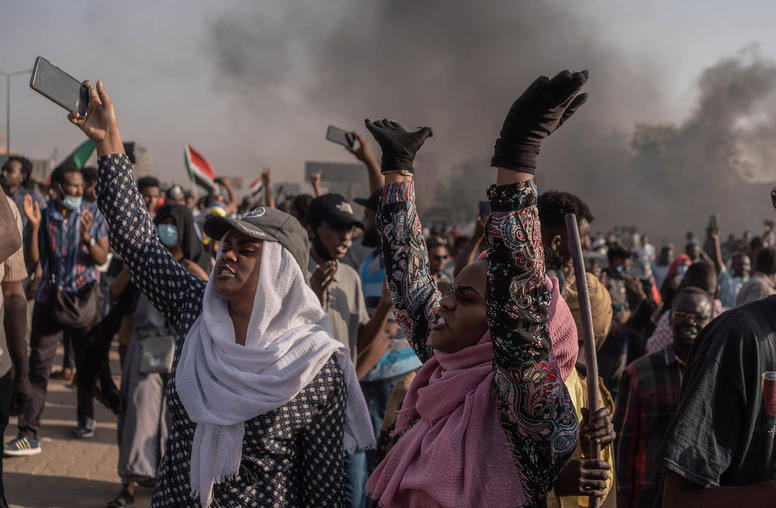
In Sudan, a Narrow Opportunity to Get the Democratic Transition Back on Track
The surprise announcement by Gen. Abdel Fattah al-Burhan, the leader of Sudan’s coup government, that the military is willing to hand power back to civilians presents an opportunity to get the democratic transition back on track.
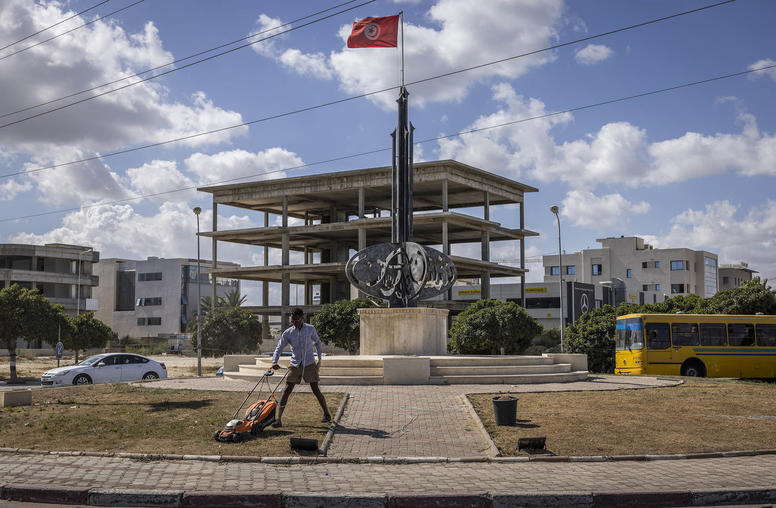
Tunisia's Twin Democracy and Economic Crises Push it to the Brink
Last July, Tunisian President Kais Saied suspended parliament in what many observers called a bloodless coup. Saied’s supporters — of which there are many — claim that this extreme executive action was necessary to root out rampant government corruption and ineffectiveness. Polling at the time showed widespread dissatisfaction with the performance of parliament and the prime minister; many Tunisians felt that their high expectations following the 2011 popular revolution were not realized and that the country was heading in the wrong direction.

Back to the Basics: Fixing the Americas’ Polarized Media Landscape
The recent Summit of the Americas in Los Angeles underscored that the Western Hemisphere faces several crises. Climate change threatens tens of millions of Americans throughout the hemisphere. Democracy, once the unquestioned standard of regional governance as recently as 1994 when it was celebrated at the inaugural Miami Summit of the Americas, is also in crisis. In fact, it became the unfortunate story of the summit: who was invited and who wasn’t. Regardless of which side of the democratic inclusion summit debate one adopts, democratic backsliding and the rise in autocratic governance like in Mexico, El Salvador and Brazil — to say nothing of the extinction of democracy in Cuba, Nicaragua and Venezuela — represents a worrisome reality that goes beyond the traditional left- versus right-wing paradigm.

Amid Historic Crisis, Has a New Hope Emerged in Lebanon?
As Lebanon suffers from an historic economic crisis propelled by the venality of its political establishment, the May 15 elections have injected a glimmer of hope amid gloomy prospects for the future. Thirteen independent candidates — part of what is dubbed the “change opposition” — won seats in the 128-member Parliament. “The election of these 13 MPs [members of Parliament] is a very important, gradual first step toward more peaceful political change and reform in Lebanon,” said Mona Yacoubian, a Lebanon expert and senior advisor for the U.S. Institute of Peace. But the road ahead is fraught with internal challenges and external forces that could impede Lebanon’s much-needed reform.

Leo Siebert on the State of Tunisia’s Democracy
Last summer, “Tunisians had really reached a breaking point in their frustration with the previous government” and welcomed President Kais Saied’s dissolution of parliament, says USIP’s Leo Siebert. But that hope “is now shifting to apprehensiveness that things might not be going in the right direction.”
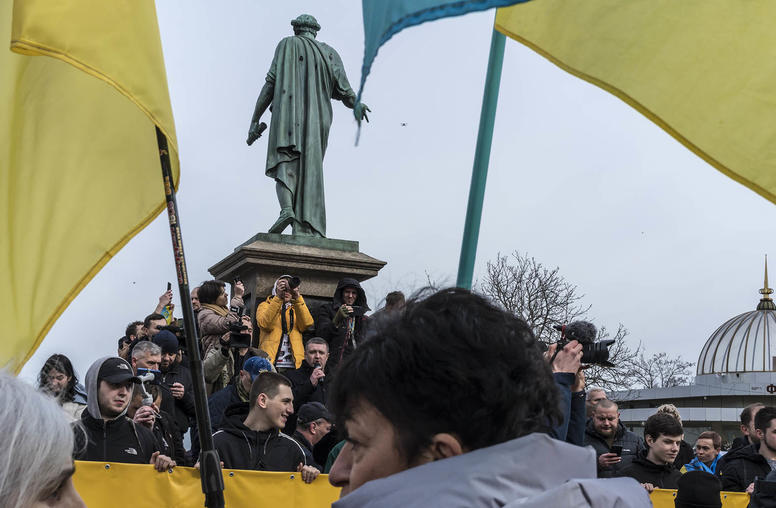
Ukraine: How to Oppose Russia’s Weaponization of Corruption
Fifteen weeks of Ukrainians’ staunch resistance to Russia’s invasion has created an opportunity to weaken one of Russia’s main weapons to undermine democracy and stability in other countries, according to Eka Tkeshelashvili, a former foreign minister of Georgia. As democracies bolster Ukraine’s defense, they also should step up support for Ukraine to root out the corruption in business and government that has long been Russian President Vladimir Putin’s primary method to cripple the independence of Russia’s neighbors. One impact of the war will be to create a stronger political base for throttling corruption in Ukraine, Tkeshelashvili said.

Steve Hege on Colombia's Presidential Runoff Vote
With no establishment candidate left, Colombia's June 19 presidential runoff reflects voters' perception that "things [on] the ground are quite bleak" as the remaining candidates "promise significant degrees of change for Colombia and its relationship with the United States," says USIP’s Steve Hege.
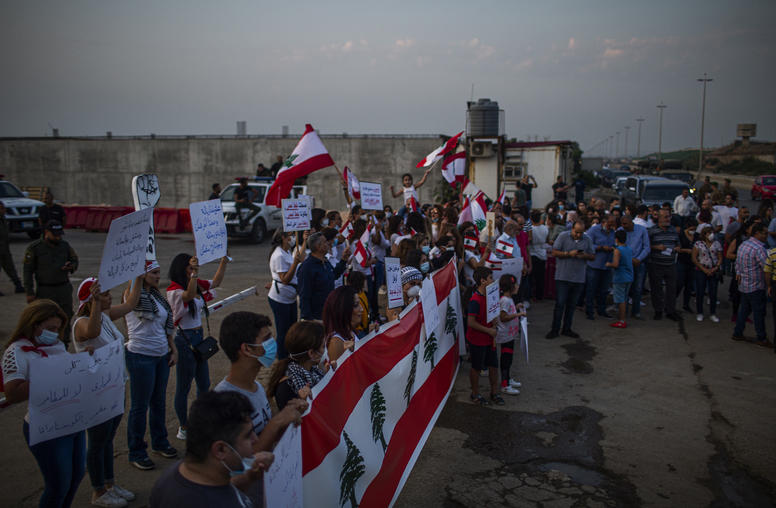
Lebanon’s Election Offers Lessons for Now and the Future
As the minister of interior announced the results of Lebanon’s May 15 legislative elections, speculation began about whether or not the configuration of the new parliament foretold a brighter future for the tormented country. While some of the results indicate positive breakthroughs and progress, there are several nuances indicating that much greater change is still needed to put the country on a steady path to recovery.
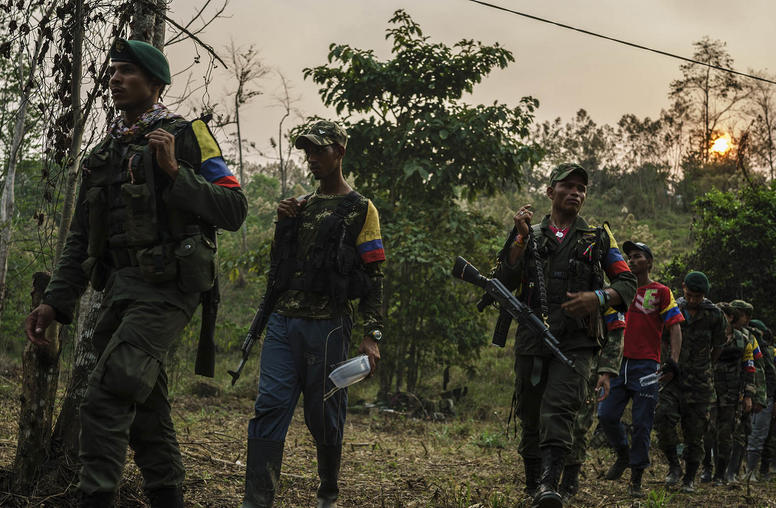
Mounting Security Challenges Await Colombia’s Next President
In the first round of Colombia’s presidential elections, long-standing opposition leader Gustavo Petro and newly emerged outsider Rodolfo Hernández both handily defeated the conservative establishment candidate Federico Gutiérrez. The latter’s third-place finish signals Colombians’ resounding rejection of the country’s status quo and a rebuke of the political establishment and predominant elites.